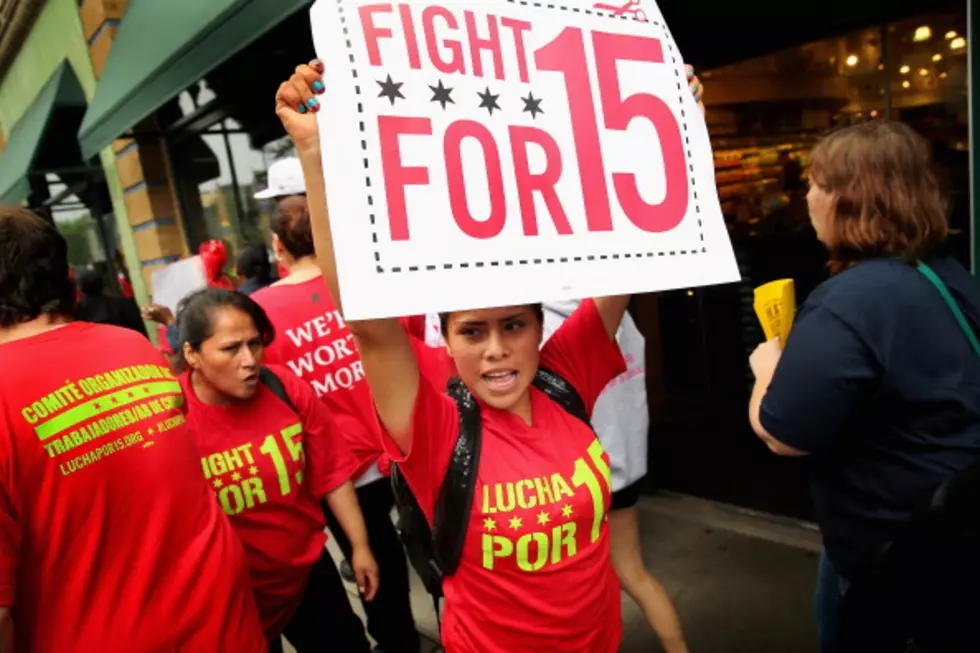
Minimum Wage vs. Living Wage
Once again the minimum wage is firmly focused in Congressional cross hairs. The president is looking to raise the minimum wage to the $10 per hour level. So what will be the ramifications of that action? Quite honestly, not much. The minimum wage has been raised many times over the years and the same arguments always surface. It will shut out the poor and uneducated and raise the wage of every worker that has an increase in the minimum wage tied to an employment contract. Life will go on and we’ll all pay a little more for goods and services.
Who Wins?
Who wins if the minimum wage is raised? Politicians. It’s a no brainer for getting votes. The IRS wins too of course. It’s a way to increase the taxes on those who can least afford it and make it look like you’re doing them a favor. Raise the minimum wage and you can raise the poverty level. There are currently 126 poverty programs administered by the US Government to help the poor. In the past decade there have never been less than 100. With all this entitlement help why would you even need a minimum wage?
Who Loses?
Entry-level workers and minorities are the biggest losers. The more expensive it is to hire and train an inexperienced worker the more reluctant business owners are to hire. Unemployment among teens 16-19, both sexes, in December of 2013 was 35 percent. Unemployment among blacks for the same period was 11.9 percent. And increasing the minimum wage will reduce this how exactly?
Current Wages In The US
According to the Bureau of Labor Statistics the average hourly wage paid to hourly workers (managers, movie stars, CEO’s or professional athletes not included) in December of 2013 was $27.14 per hour ($56,451.20 per year). The lowest paid average wage is in Leisure & Hospitality at $13.66 per hour ($28,412.80 per year) — almost double the current wage of $7.75 ($16,120 per year).
Cost of Goods Sold
On every business tax return you will find a line entitled “Cost of Good Sold.” What this means is that business has many costs to pay before they take any profit out of the company. These would include things like rent, utilities, inventory AND payroll expense. For many employers payroll can be their largest expense.
Contrary to popular belief employers can’t pass every cost they incur on to the consumer. They still have to be competitive with businesses that might have fewer expenses. So cuts have to be made and quite often that means warm bodies are kicked to the curb. It’s business, not personal, as many people like to think. No employer likes to put a good person out of work, but if the company fails then everyone is out of work.
Some Final Thoughts
The minimum wage was never designed to be a living wage. It was designed to define an entry-level wage to gain experience and skill before moving up the income ladder. As shown in the Bureau of Labor Statistics chart above, the free market places an even greater value on workers than the proposed minimum wage of $10+. Even the lowest paid industries command 30 percent more in hourly wage than the minimum proposed. What’s your opinion? Raise it or leave it where it is?
More From KMMS-KPRK 1450 AM








![[POLL] Will You Got Back to Restaurants and Bars When They Open?](http://townsquare.media/site/8/files/2017/04/Adam-Berry.jpg?w=980&q=75)
